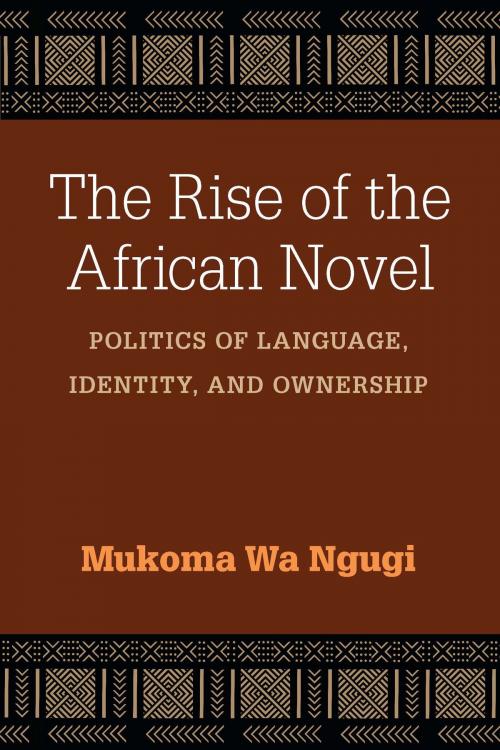The Rise of the African Novel
Politics of Language, Identity, and Ownership
Fiction & Literature, Literary Theory & Criticism, African, Black| Author: | Mukoma Wa Ngugi | ISBN: | 9780472123360 |
| Publisher: | University of Michigan Press | Publication: | March 27, 2018 |
| Imprint: | University of Michigan Press | Language: | English |
| Author: | Mukoma Wa Ngugi |
| ISBN: | 9780472123360 |
| Publisher: | University of Michigan Press |
| Publication: | March 27, 2018 |
| Imprint: | University of Michigan Press |
| Language: | English |
The Rise of the African Novel is the first book to situate South African and African-language literature of the late 1880s through the early 1940s in relation to the literature of decolonization that spanned the 1950s through the 1980s, and the contemporary generation of established and emerging continental and diaspora African writers of international renown.
Calling it a major crisis in African literary criticism, Mukoma Wa Ngugi considers key questions around the misreading of African literature: Why did Chinua Achebe’s generation privilege African literature in English despite the early South African example? What are the costs of locating the start of Africa’s literary tradition in the wrong literary and historical period? What does it mean for the current generation of writers and scholars of African literature not to have an imaginative consciousness of their literary past?
While acknowledging the importance of Achebe’s generation in the African literary tradition, Mukoma Wa Ngugi challenges that narrowing of the identities and languages of the African novel and writer. In restoring the missing foundational literary period to the African literary tradition, he shows how early South African literature, in both aesthetics and politics, is in conversation with the literature of the African independence era and contemporary rooted transnational literatures.
This book will become a foundational text in African literary studies, as it raises questions about the very nature of African literature and criticism. It will be essential reading for scholars of African literary studies as well as general readers seeking a greater understanding of African literary history and the ways in which critical consensus can be manufactured and rewarded at the expense of a larger and historical literary tradition.
The Rise of the African Novel is the first book to situate South African and African-language literature of the late 1880s through the early 1940s in relation to the literature of decolonization that spanned the 1950s through the 1980s, and the contemporary generation of established and emerging continental and diaspora African writers of international renown.
Calling it a major crisis in African literary criticism, Mukoma Wa Ngugi considers key questions around the misreading of African literature: Why did Chinua Achebe’s generation privilege African literature in English despite the early South African example? What are the costs of locating the start of Africa’s literary tradition in the wrong literary and historical period? What does it mean for the current generation of writers and scholars of African literature not to have an imaginative consciousness of their literary past?
While acknowledging the importance of Achebe’s generation in the African literary tradition, Mukoma Wa Ngugi challenges that narrowing of the identities and languages of the African novel and writer. In restoring the missing foundational literary period to the African literary tradition, he shows how early South African literature, in both aesthetics and politics, is in conversation with the literature of the African independence era and contemporary rooted transnational literatures.
This book will become a foundational text in African literary studies, as it raises questions about the very nature of African literature and criticism. It will be essential reading for scholars of African literary studies as well as general readers seeking a greater understanding of African literary history and the ways in which critical consensus can be manufactured and rewarded at the expense of a larger and historical literary tradition.















